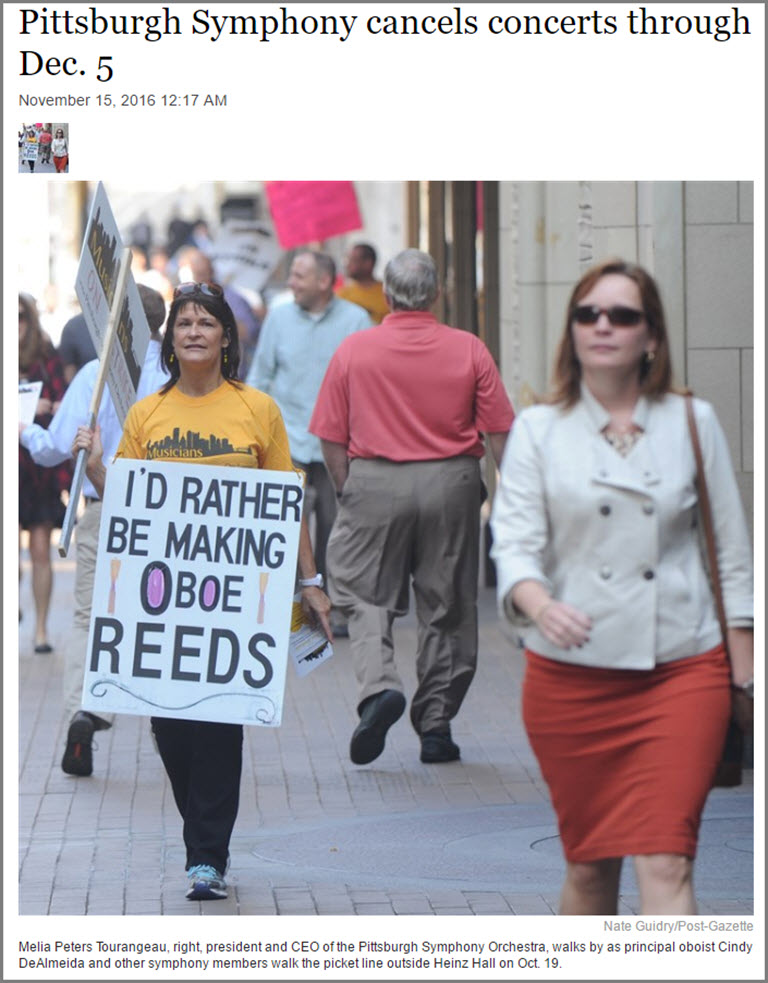As if things weren’t interesting enough already in Pittsburgh, they’ve just become more intriguing. Now that four of the “Big 5” orchestras have settled their contracts negotiations (more or less) the Pittsburgh Symphony is able to start working with some figures to set their pay future pay scale.
If you’re not up to speed on the unique contract langue from the concessionary contract the Pittsburgh musicians recently accepted, their salaries are contractually obligated to be 95% of the average base salaries of New York, Chicago, Philadelphia, and Cleveland.
Sounds simple, right? Wrong. An orchestra base salary is not always derived from a single source and the bigger the organization the more sources there are for the overall income. That cumulative amount can be reached through a variety of separate sources which can include a straight up salary, electronic media guarantees (EMG’s), insurance reimbursements, per diems, one time contract signing bonuses, etc.
In an article by Mark Kanny, the Pittsburgh Tribune-Review classical music critic, he reported the following statement issued by Pittsburgh Symphony management:
However, symphony President Larry Tamburri said through spokeswoman Jody Doherty that the contract language of the other agreements need to be compared with the one here, after which symphony officials will meet with the orchestra committee. Asked whether the PSO would fulfill its contract, he said, “We have an agreement.”
And that’s where you’ll start to see a difference in how one side interprets actual pay as opposed to the other. I wouldn’t be surprised at all if that process becomes as involved and intense as the regular contract negotiations. I’m also curious to know that if the orchestra’s economic trouble continues will the Pittsburgh management request that the musicians take a liberal interpretation of the other contracts so as to reduce the overall average between the four.
In my opinion, a 24% increase (the amount the PSO base salary would increase if all things are equal) in salary in one year is a tremendous task to accomplish, even for an orchestra flush with cash and years of budget surpluses (which Pittsburgh isn’t).
An aside: I also find it a bit odd that an orchestra would attach an actual percentage of their salary based on orchestras that have a higher base minimum. Since many orchestra musicians and managers alike often use base salary as a means to compare one orchestra to another does this mean that the collective stakeholders in Pittsburgh believe they are only 95% as good as these other orchestras?
In the end, one thing everyone can be certain of is that there won’t be a quick and easy solution to the question. And if management or musicians begin to implement some questionable interpretation practices to determine an average base salary figure at the other orchestras the entire premise of the concession compromise will go out the window.
On the other hand, if the Pittsburgh board can manage to pull in a steady revenue stream to meet the 10% increase in the overall budget to cover the 24% increase in musician salary then all the better. I doubt will be so clear cut, but if they can raise that much money, I hope they would establish an endowment which will only be used to finance musician salaries.


